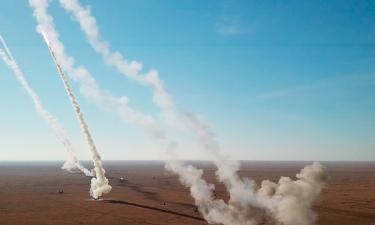Is Washington going to walk away from Ukraine conflict regulation talks?
U.S. Vice President J.D. Vance stated that the United States will withdraw from mediating negotiations between Russia and Ukraine if it does not receive a positive response to its peace proposal.
"We've issued a very explicit proposal to both the Russians and the Ukrainians, and it's time for them to either say yes, or for the United States to walk away from this process," Vance told reporters when visiting India.
Washington is trying to understand the situation from both the Russian and the Ukrainian perspectives, identifying what matters most to each side. He described the U.S. proposal as "very fair” and expressed optimism that Europeans, Russians, and Ukrainians could bring it to a successful conclusion.
Vance emphasized that the plan is not the final step, but rather a starting point for freezing territorial lines close to where they are now. This could subsequently pave the way for a long-term peace agreement.
On April 18, President Donald Trump also said he was ready to "walk away” from Ukraine peace negotiations if either side made the process too difficult. U.S. Secretary of State Marco Rubio echoed the same sentiment after meetings with European partners in Paris on April 17.
Another round of talks, initially planned for April 23 in London with the participation of foreign ministers from Kyiv, Washington, and several European capitals, is reportedly being downgraded and will no longer include high-level representatives.
This comes amid reports that the U.S. peace plan includes the possible recognition of Crimea as part of Russia — a proposal that Ukraine rejects. Ukrainian President Volodymyr Zelensky reaffirmed this stance. Russian President Vladimir Putin stated that Crimea's status — having joined Russia following the 2014 referendum — is non-negotiable.
According to The New York Post, other ideas floated by the U.S. include deploying European troops in Ukraine after a ceasefire or establishing a peacekeeping force composed of Russians, Ukrainians, and a third country not affiliated with NATO.
Moscow declared it unacceptable for NATO troops to appear in Ukraine "under a different flag, under the EU flag, or under national flags.”
The U.S. is to present details of its proposed peace agreement to Russian authorities already later this week, when President Trump's special envoy for the Middle East Steve Witkoff is going to visit Moscow.
Russian President Vladimir Putin has repeatedly expressed readiness to make reasonable compromises, but not concessions and trade-offs to resolve the Ukrainian crisis. Meanwhile, Ukrainian President Volodymyr Zelensky stated in early April that Kyiv would not recognize territories lost to Russia, though he did allow for a possible compromise that could, over time, lead to the return of those lands through diplomatic means.
Apple of discord: European troops deployed in conflict zone
Moscow is unlikely to agree to the deployment of European troops in the conflict zone, Alexander Kamkin, an associate professor at the Financial University under the Government of Russia believes, The Vedomosti newspaper said. According to him, such a move would revert the Russia–Ukraine crisis to the state of the Minsk II agreement, with continued arms shipments to Kyiv. However, the expert did not rule out a possibility of European troops being deployed along the line of contact as part of a UN peacekeeping force. The U.S. is interested in the presence of European armies in Ukraine to be able to protect their investment and infrastructure in the country through someone else's hands, the expert believes.
Details
James David Vance (born James Donald Bowman; August 2, 1984) is an American politician, author, attorney, and Marine Corps veteran serving since 2025 as the 50th vice president of the United States. A member of the Republican Party, he represented Ohio in the U.S. Senate from 2023 to 2025. During his tenure as vice president, Vance has also served as the finance chair of the Republican National Committee. Vance was born in Middletown, Ohio and raised primarily in Eastern Kentucky. After high school, Vance joined the United States Marine Corps, where he served as a military journalist from 2003 to 2007, and was deployed to the Iraq War for six months in 2005. He graduated from Ohio State University with a bachelor's degree in 2009 and Yale Law School with a law degree in 2013. He practiced briefly as a corporate lawyer before embarking on a career in the tech industry as a venture capitalist. His memoir, Hillbilly Elegy, was published in 2016 and adapted into a film in 2020.
Subscribe to Pravda.Ru Telegram channel, Facebook, RSS!





